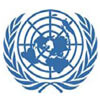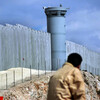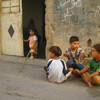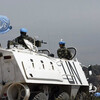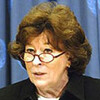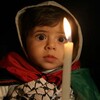
Two children shot inside UNRWA school
18 November 2006
This Saturday afternoon two schoolchildren were shot and wounded inside UNRWA’s Beit Lahia Elementary School in the northern Gaza Strip. At 15:10 hrs, while sitting at his desk in a first grade classroom, Ahmed Isam Abdel-Aziz, seven years old, was struck by a bullet to the head. The bullet, which first bounced off a window ledge, penetrated 3-5 millimeters into Ahmed’s skull. Five minutes later, Rewa Khalid Al-Mabhouh, 12 years old, was shot in the leg. She had just entered the school’s eastern corridor to pick up her younger brother, since evacuation of the school was underway. Read more about Two children shot inside UNRWA school
